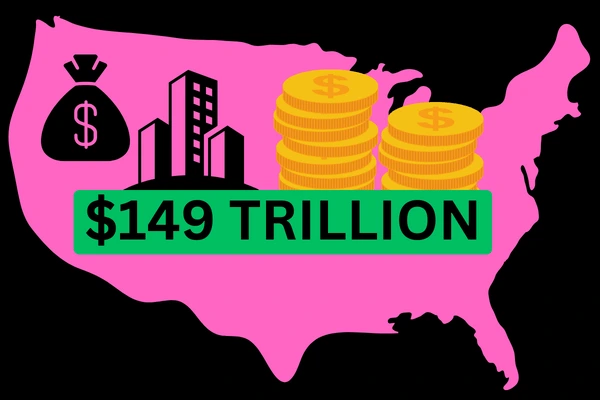
The total wealth owned by all U.S. households and nonprofits in the U.S. is valued at $149 trillion according to the Federal Reserve as of March 2023.
We don’t include the wealth owned by corporations because that would be double counting, since every corporation is owned (directly or indirectly) by some combination of individuals and nonprofits.
The $149 trillion of total wealth consists of approximately $168 trillion of assets along with $19.6 trillion of liabilities (of which $19.2 trillion belongs to households while $0.4 trillion belongs to nonprofits).
The biggest contributions to household net worth were (1) directly and indirectly held corporate equities ($42 trillion) and (2) household real estate ($41 trillion).
How big is the U.S. housing market?
The total value of all U.S. housing in 2023 is about $48 trillion.
How big is the U.S. public stock market?
The total value of all equities traded on the New York Stock Exchange, Nasdaq, and OTCQX was approximately $46 trillion as of June 30, 2023.
How big is the U.S. public bond market?
The total value of all publicly issued bonds (both corporate and government) is about $51 trillion as of 2023.
What is the total equity value of private companies in the U.S.?
According to economics professor Jacob Robbins, the total value of all U.S. private companies was about $13.6 trillion in 2017.
From August 2017 to August 2023, the S&P500 climbed about 83.7%. If we assume that private companies perform about the same as public companies on average, then that would imply the total value of all privately held companies in the U.S. is about $25.0 trillion as of August 2023.
How much money is managed by SEC-registered investment advisers (RIAs)?
In 2022, RIAs managed $114 trillion of assets, down from $128 trillion of assets in 2021.